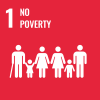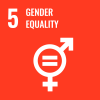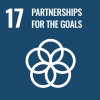IOM, Thai Ministries of Justice and Labour, UNDP Co-Host Business Consultations on Ethical Recruitment and Employment of Migrant Workers
Bangkok – This week (17 May), Thai business representatives joined the first public-private consultations on promoting ethical recruitment and decent work of migrant workers across multiple business sectors held under the auspices of advancing the implementation of the National Action Plan on Business and Human Rights (NAP).
The event, co-organized by the International Organization for Migration (IOM), the Rights and Liberties Protection Department of the Ministry of Justice, the Ministry of Labour, and the United Nations Development Programme (UNDP), brought together over 50 Thai business representatives to discuss market-based and legal challenges standing in the way of implementation of ethical recruitment and employment practices in Thailand, and to develop recommendations for the Royal Thai Government on the way forward.
“In moving forward, systemic changes are necessary so that we can truly leave no one behind,” said Dr. Netithorn Praditsarn, Deputy Secretary-General of the Global Compact Network Thailand. Dr. Praditsarn highlighted the need to simplify regular migration channels to the benefit of migrant workers and the importance of enforcing anti-corruption measures throughout the migrant workers’ journey.
During the workshop, business representatives also highlighted the need for collective action and a whole of society approach, including through collaboration with brands, suppliers, civil society and governments, to make ethical recruitment and decent employment of migrant workers a reality in international supply chains. Businesses stressed that small and medium enterprises must be part of these collective actions and that further support is needed to help these actors implement ethical recruitment practices in their day-to-day operations.
“The Employers’ Confederation of Thailand fully supports ethical and fair recruitment and employment practices of all workers, including migrant workers. We urge all Thai employers to practice such policies for the benefit of our workers, businesses, community and our country towards achieving sustainable growth and development” said Ms. Siriwan Romchatthong, Secretary-General of the Employers’ Confederation of Thailand.
Ms. Nareeluc Pairchaiyapoom, Director of International Human Rights Division, Rights and Liberties Protection Department at the Ministry of Justice recognized that since the publication of the NAP in 2019, more Thai companies have been focusing on advancing the respect for human rights in their direct business operations through, among others, adoption of policies to prevent the violation of human rights in the workplace and implementation of human rights due diligence.
Ms. Gita Sabharwal, the UN Resident Coordinator in Thailand, highlighted that migrant workers have been disproportionately affected by the COVID-19 pandemic.
“The draft 13th NESDP calls migrants one the most vulnerable populations and underscores the key role migrants play in the labour force as Thailand is an aging population. While Thailand has a well-developed social protection system good work continues to address any ‘last mile’ challenges that include the need for integration across systems and bridging gaps in coverage for the most vulnerable groups such as migrants," said Ms. Sabharwal.
Recommendations provided by businesses during the workshop, including those in relation to the impact of COVID-19 on ethical recruitment and decent employment of migrant workers, have been structured per three key business sectors represented during the event, including 1) food and beverage; 2) garment, apparel, and textile; and 3) electronics, construction, and others.
All recommendations will be consolidated by IOM and UNDP into a summary report which will be submitted to relevant stakeholders, including the Royal Thai Government, to inform their strategy to further promote compliance with ethical recruitment and decent employment of migrant workers among Thai companies and in line with the National Action Plan on Business and Human Rights (NAP).
This event is part of IOM’s Corporate Responsibility in Eliminating Slavery and Trafficking in the Fashion Industry (CREST Fashion) project funded by the Laudes Foundation, and UNDP’s Business and Human Rights in Asia project implemented in partnership with the European Union.
Meeting records are available at https://bit.ly/3vI7R9i
Session 1: https://youtu.be/qB55f5aRDTw - Opening Remarks
Session 2: https://youtu.be/nnzI_yECN4g - National Trends on Ethical Recruitment
Session 3: https://youtu.be/czOU57yHUvc - International Trends on Ethical Recruitment
For more information, please contact us at CRESTThailand@iom.int
IOM’s Corporate Responsibility in Eliminating Slavery and Trafficking in the Fashion Industry (CREST Fashion), funded by the Laudes Foundation, partners with multi-national enterprises and local companies operating in South Asia and Southeast Asia’s apparel and home textile supply chains to promote responsible business conduct in line with the United Nations Guiding Principles on Business and Human Rights (UNGPs). For more information, please contact us at CRESTThailand@iom.int
Business and Human Rights in Asia: Enabling Sustainable Economic Development through the Protect, Respect and Remedy Framework, financed under the Partnership Instrument of the European Union, supports the implementation of the UN Guiding Principles on Business and Human Rights in close partnership with Asian governments, business, and civil society, through dialogue, training, research, small grant provision and awareness raising activities. In so doing, the joint EU-UNDP action aims to strengthen human rights conditions in business operations and supply chains, facilitating sustainable economic growth while promoting multilateralism. For more information, please contact us at rbap.businessandhumanrights@undp.org

























